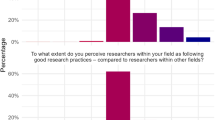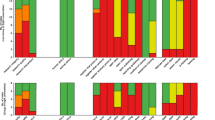Abstract
Ethics committees like Institutional Review Boards and Research Ethics Committees are typically empowered to approve or reject proposed studies, typically conditional on certain conditions or revisions being met. While some have argued this power should be primarily a function of applying clear, codified requirements, most institutions and legal regimes allow discretion for IRBs to ethically evaluate studies, such as to ensure a favourable risk-benefit ratio, fair subject selection, adequate informed consent, and so forth. As a result, ethics committees typically make moral demands on researchers: require them to act in a way the committee considers ethically right or appropriate. This paper argues that moral demands are legitimate only if publicly justifiable; and as a result, committee decisions are subject to a public justification requirement. Ethics committees can permissibly request for more information, changes to the research protocol or that the research is delayed or even stopped only if these demands are publicly justifiable. This latter claim is in turn justified on the basis that moral demands to φ are permissible only if we are in a position to know that the addressee ought to φ and that we are in a position to know a proposition only if it is publicly justifiable.
This argument suggests that ethics committees must consciously and explicitly appeal to public reasons in their decision-making. In cases where public reasons cannot be offered, committees would not be permitted to reject a given study or make approval conditional on an amendment.
Similar content being viewed by others
Notes
Ted Dove made the same point during his keynote address in Australasian Association of Bioethics and Health Law Conference 2022.
The argument we provide in this paper is compatible with London’s (2022) defence of prospective ethics review. This parallels how public justification requirements and other arguments for limited governments are compatible with Hobbesian defences of the state.
i.e. All IRB decisions other than accepting a research proposal without comment.
Whereas some proportionality assessment with regards to risk to research subjects is required by The Common Rule, no such assessment is required by HBRA or NMRCA. Yet, IRBs in these jurisdictions still apply such an assessment.
See also the UK Medicines for Human Use (Clinical Trials) Regulation 2014.
For instance, Singapore and Australia.
Certainly, IRBs are not the only entities which make moral demands. The issuing of moral demands is a central feature of moral life and plays a role in how societies are able to co-ordinate behaviour in the face of different preferences (Gaus 2011). This paper raises the example of IRBs, in part, because it is a particularly stark and formalised example of this practice.
Arguably also Leland and van Wietmarschen (2012).
In theory there could be epistemology boards which are convened purely to ensure that researchers maintain an adequate degree of epistemic hygiene. Presumably those boards may make purely epistemic demands on researchers. We do not comment on whether these demands are subject to a public justification requirement, only that ethics boards are.
While the question as to whether a given course of treatment is too risky is often going to depend on what alternatives there are and what their relative costs are, we will simplify our case by supposing that the only cause of disagreement between Alf and Betty on this issue is due to disagreement about exactly how risky the treatment is.
We focus on cognitive capacity-based accounts of permissivism in this paper instead of other accounts, for instance, those where different epistemic standards are justified in virtue of the agent’s different priors or epistemic risk attitude. We do this because for those accounts, it is easy to make the claim that the agent was lucky to have the right priors or epistemic risk attitudes which resulted in the justified belief being true. If the agent is lucky in those cases, then those cannot be instances of knowledge. Unlike those versions of permissivism, it is hard to argue that the mere luck of having been born with better cognitive capacities undermines knowledge. Cognitive capacities seem different from these other factors.
We might think that he currently does not know because he is merely lucky that he did not encounter any sufficiently strong disconfirming evidence. Yet, given that believing that the treatment is too risky would still be justified even after considering all the evidence, there is no sufficiently strong disconfirming evidence. Hence it is not a matter of luck that his belief ends up true. Arguably, this is compatible with Betty being unlucky in failing to consider some sufficiently strong evidence that would disconfirm her belief.
For a more extensive discussion of this version of permissivism, contact the corresponding author for his manuscript, Permissivism and Epistemic Conservatism.
One might object that in cases where Alf receives a genuine and transparently divine revelation that stem-cell research is wrong, he is in a position to know that it is wrong even if this claim is not publicly justifiable. However, evidential non-inferiority does not obtain in cases of true transparent divine revelation. Moreover, it would be prejudicial to idealise agents in such a way as to exclude religious views simply for being religious. After all, the claim that religious doctrines are not publicly justifiable is not a presupposition of the public justification requirement, but a distinct claim that political liberals make. Therefore, it would be publicly justifiable. In any case, third parties like IRB members are typically not in a position to adjudicate such claims as they would not be able to distinguish true divine revelations from false ones.
Although it might be prudent to keep records for audit purposes.
References
Adler JE (2002) Belief’s own Ethics. MIT Press
Anantharaman M (2015) Defending the Uniqueness Thesis: A Reply to Luis Rosa. Logos and Episteme, 6(1), 129–139
Ballantyne N, Coffman E (2011) Uniqueness, evidence and rationality. Philosophers’ Impr 11(18):1–13
Booth A, Peels R (2010) Why responsible belief is blameless belief. J Philos 107(5):257–265. https://www.jstor.org/stable/25764445
Briggs R (2022) The Abject Failure of IRBs. The Chronicle of Higher Education
Callahan LF (2019) Existential Permissivism. Episteme, 1–16. https://doi.org/10.1017/epi.2019.25
CIOMS (2016) International Ethical Guidelines for Health Related Research Involving Humans Geneva
Dixon-Woods M, Ashcroft RE (2008) Regulation and the Social Licence for Medical Research. Med Healthc Philos 11:381–391
Emanuel EJ, Wendler D, Grady C (2000) What makes clinical research ethical. JAMA 283(20):2701–2711
Enoch D (2017) Political philosophy and epistemology: the case of public reason. In: Sobel D, Vallentyne P, Wall S (eds) Oxford Studies in Political Philosophy, volume 3. Oxford University Press, pp 132–165
Gaus G (2011) The order of public reason. Cambridge University Press
Horowitz S (2014) Epistemic Akrasia. Nous 48(4):718–744
Hyman DA(2007) The pathologies of institutional review boards.Regulation, Summer,42–49
Kelly T (2014) Evidence can be permissive. In: Steup M, Turri J, Sosa E (eds) Contemporary Debates in Epistemology. Wiley-Blackwell, pp 298–312
Klitzman R (2011) The Ethics Police?: IRBs’ views concerning their power. PLoS ONE 6(12):e28773. https://doi.org/10.1371/journal.pone.0028773
Kotsis SV, Chung KC (2014) Institutional review boards: what’s Old, what’s New, what needs to change? Plast Reconstr Surg 133(2):439–445. https://doi.org/10.1097/01.prs.0000436846.00247.73
Larmore C(2015) Political Liberalism: Its Motivations and Goals. In D. Sobel, P. Vallentyne, & S. Wall, Oxford Studies in Political Philosophy Vol 1 Oxford University Press. 64–88 https://doi.org/10.1093/acprof:oso/9780199669530.001.0001
Leland RJ, van Wietmarschen H (2012) Reasonableness, intellectual modesty, and reciprocity in political justification. Ethics 122(4):721–741
London AJ (2022) For the Common Good: philosophical foundations of Research Ethics. Oxford University Press. https://doi.org/10.1093/oso/9780197534830.003.0007
Mackay D (2016) Fair subject selection in clinical research: formal equality of opportunity. J Med Ethics 42:672–677. https://doi.org/10.1136/medethics-2015-103311
Matheson J (2011) The case for rational uniqueness. Logos and Episteme 2(3):359–373
Meacham CJ (2014) Impermissive Bayesianism. Erkenntnis 79:1185–1217. https://doi.org/10.1007/s10670-013-9547-z
Mill JS (2009) On Liberty. The Floating Press
Moore A, Donnelly A (2018) The job of ‘ethics committees’. J Med Ethics 44:481–487
Muralidharan A (ed) Political Liberalism and Reasonable Disagreement. Social Theory and Practice. https://www.academia.edu/46929543/Political_Liberalism_and_Reasonable_Disagreement_Social_Theory_and_Practice?email_work_card=title
Peels R, Booth A (2014) Why responsible belief is permissible belief. Analytic Philos 55(1):75–88. doi:https://doi.org/10.1111/phib.12036
Podgorski A (2016a) Dynamic permissivism. Philos Stud 1923–1939. https://doi.org/10.1007/s11098-015-0585-z
Podgorski A (2016b) Dynamic conservatism. Ergo 3(13):349–376. https://doi.org/10.3998/ergo.12405314.0003.013
Rawls J (1993) Political liberalism. Columbia University Press
Rosa L (2012) Justification and the Uniqueness Thesis. Logos and Episteme, 4, 571–577
Rosa L (2016) Justification and the Uniqueness Thesis Again - A Response to Anantharaman. Logos and Episteme, 7, 95–100
Schoenfield M (2014) Permission to believe: why Permissivism is true and what it tells us about irrelevant influences on belief. Nous 48(2):193–218
Simpson RM (2017) Permissivism and the arbitrariness objection. Episteme 14(4):519–538. https://doi.org/10.1017/epi.2016.35
Smithies D (2019) The Epistemic role of consciousness. Oxford University Press
Solomon S (2016) Too many Rationales, not enough reason: a call to examine the goals of including Lay members on institutional review boards. Account Res 23(1):4–22. https://doi.org/10.1080/08989621.2014.956865
Stark L (2007) Victims in our own minds? IRBs in myth and practice. Law and Society Review 41(4):777–786
Vallier K (2011) Convergence and Consensus in Public reason. Public Affairs Quarterly 25(4):261–279
White R(2014) Evidence Cannot be Permissive. In M. Steup, J. Turri, & E. Sosa (Eds.), Contemporary Debates in Epistemology 2e Wiley-Blackwell, pp. 312–322
Acknowledgements
We would like to thank Julian Savulescu, RJ Leland, Abelard Podgorski, Yeo Shang Long and the anonymous reviewers at Ethical Theory and Moral Practice for providing feedback on earlier versions of this paper.
Author information
Authors and Affiliations
Corresponding author
Ethics declarations
Conflict of interest
This article has not been submitted elsewhere for publication. There are no conflicts of interest to declare. This research is supported by the NUHS Internal Grant Funding under its NUS Start-up grant (NUHSRO/2020/138/Startup/07)
Additional information
Publisher’s Note
Springer Nature remains neutral with regard to jurisdictional claims in published maps and institutional affiliations.
Rights and permissions
Springer Nature or its licensor (e.g. a society or other partner) holds exclusive rights to this article under a publishing agreement with the author(s) or other rightsholder(s); author self-archiving of the accepted manuscript version of this article is solely governed by the terms of such publishing agreement and applicable law.
About this article
Cite this article
Muralidharan, A., Schaefer, G. Institutional Review Boards and Public Justification. Ethic Theory Moral Prac 26, 405–423 (2023). https://doi.org/10.1007/s10677-022-10360-2
Received:
Revised:
Accepted:
Published:
Issue Date:
DOI: https://doi.org/10.1007/s10677-022-10360-2




